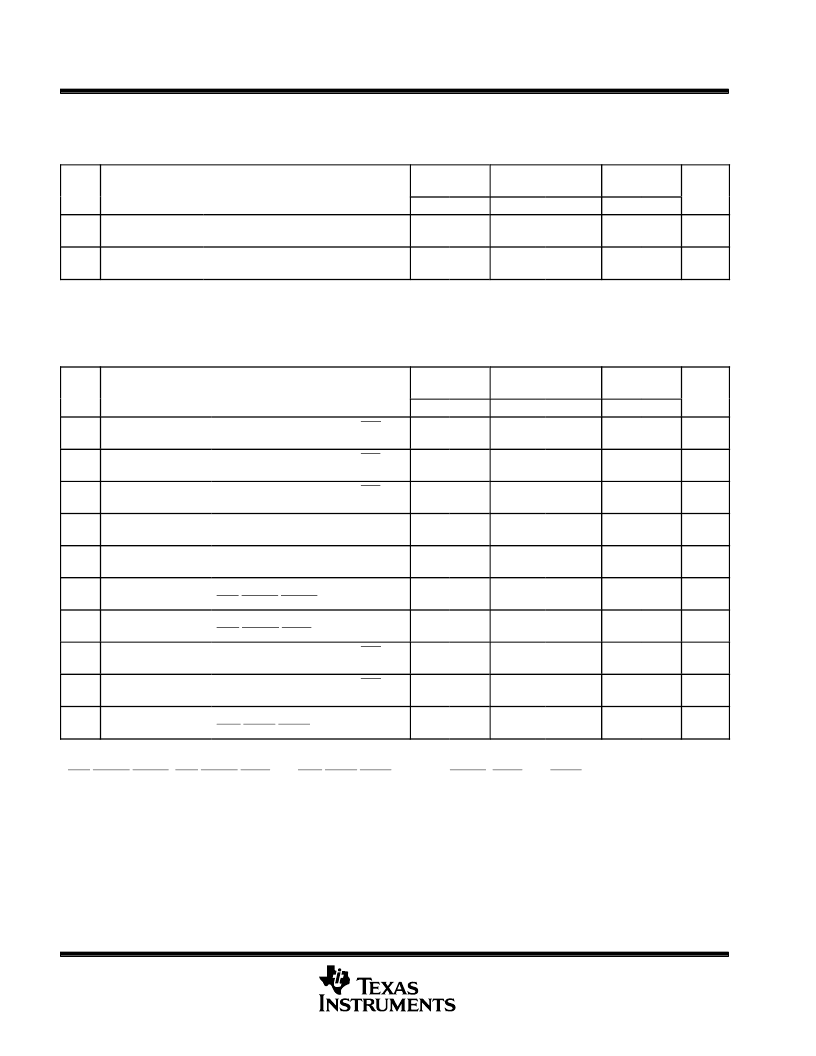- 您現(xiàn)在的位置:買賣IC網(wǎng) > PDF目錄382647 > TMX320C6211GLZ167 (Texas Instruments, Inc.) FIXED-POINT DIGITAL SIGNAL PROCESSORS PDF資料下載
參數(shù)資料
| 型號(hào): | TMX320C6211GLZ167 |
| 廠商: | Texas Instruments, Inc. |
| 元件分類: | 數(shù)字信號(hào)處理 |
| 英文描述: | FIXED-POINT DIGITAL SIGNAL PROCESSORS |
| 中文描述: | 定點(diǎn)數(shù)字信號(hào)處理器 |
| 文件頁(yè)數(shù): | 50/83頁(yè) |
| 文件大?。?/td> | 1176K |
| 代理商: | TMX320C6211GLZ167 |
第1頁(yè)第2頁(yè)第3頁(yè)第4頁(yè)第5頁(yè)第6頁(yè)第7頁(yè)第8頁(yè)第9頁(yè)第10頁(yè)第11頁(yè)第12頁(yè)第13頁(yè)第14頁(yè)第15頁(yè)第16頁(yè)第17頁(yè)第18頁(yè)第19頁(yè)第20頁(yè)第21頁(yè)第22頁(yè)第23頁(yè)第24頁(yè)第25頁(yè)第26頁(yè)第27頁(yè)第28頁(yè)第29頁(yè)第30頁(yè)第31頁(yè)第32頁(yè)第33頁(yè)第34頁(yè)第35頁(yè)第36頁(yè)第37頁(yè)第38頁(yè)第39頁(yè)第40頁(yè)第41頁(yè)第42頁(yè)第43頁(yè)第44頁(yè)第45頁(yè)第46頁(yè)第47頁(yè)第48頁(yè)第49頁(yè)當(dāng)前第50頁(yè)第51頁(yè)第52頁(yè)第53頁(yè)第54頁(yè)第55頁(yè)第56頁(yè)第57頁(yè)第58頁(yè)第59頁(yè)第60頁(yè)第61頁(yè)第62頁(yè)第63頁(yè)第64頁(yè)第65頁(yè)第66頁(yè)第67頁(yè)第68頁(yè)第69頁(yè)第70頁(yè)第71頁(yè)第72頁(yè)第73頁(yè)第74頁(yè)第75頁(yè)第76頁(yè)第77頁(yè)第78頁(yè)第79頁(yè)第80頁(yè)第81頁(yè)第82頁(yè)第83頁(yè)

TMS320C6211, TMS320C6211B
FIXED-POINT DIGITAL SIGNAL PROCESSORS
SPRS073K
AUGUST 1998
REVISED MARCH 2004
50
POST OFFICE BOX 1443
HOUSTON, TEXAS 77251
1443
SYNCHRONOUS-BURST MEMORY TIMING
timing requirements for synchronous-burst SRAM cycles
(see Figure 20)
NO.
C6211
150
C6211
167
C6211BGFNA
150
C6211B
150
C6211B
167
UNIT
MIN
MAX
MIN
MAX
MIN
MAX
6
t
su(EDV-EKOH)
Setup time, read EDx valid before
ECLKOUT high
2.5
2.5
2.5
ns
7
t
h(EKOH-EDV)
Hold time, read EDx valid after
ECLKOUT high
1
2.5
2
ns
The C6211/C6211B SBSRAM interface takes advantage of the internal burst counter in the SBSRAM. Accesses default to incrementing 4-word
bursts, but random bursts and decrementing bursts are done by interrupting bursts in progress. All burst types can sustain continuous data flow.
switching characteristics over recommended operating conditions for synchronous-burst SRAM
cycles
(see Figure 20 and Figure 21)
NO.
PARAMETER
C6211
150
C6211
167
C6211BGFNA
150
C6211B
150
C6211B
167
UNIT
MIN
MAX
MIN
MAX
MIN
MAX
1
t
d(EKOH-CEV)
Delay time, ECLKOUT high to CEx
valid
1.5
6.5
1
6.5
1.2
6.5
ns
2
t
d(EKOH-BEV)
Delay time, ECLKOUT high to BEx
valid
6.5
6.5
6.5
ns
3
t
d(EKOH-BEIV)
Delay time, ECLKOUT high to BEx
invalid
1.5
1
1.2
ns
4
t
d(EKOH-EAV)
Delay time, ECLKOUT high to EAx
valid
6.5
6.5
6.5
ns
5
t
d(EKOH-EAIV)
Delay time, ECLKOUT high to EAx
invalid
1.5
1
1.2
ns
8
t
d(EKOH-ADSV)
Delay time, ECLKOUT high to
ARE/SDCAS/SSADS valid
1.5
6.5
1
6.5
1.2
6.5
ns
9
t
d(EKOH-OEV)
Delay time, ECLKOUT high to
AOE/SDRAS/SSOE valid
1.5
6.5
1
6.5
1.2
6.5
ns
10
t
d(EKOH-EDV)
Delay time, ECLKOUT high to EDx
valid
7
7
7
ns
11
t
d(EKOH-EDIV)
Delay time, ECLKOUT high to EDx
invalid
1.5
1
1.2
ns
12
t
d(EKOH-WEV)
Delay time, ECLKOUT high to
AWE/SDWE/SSWE valid
1.5
6.5
1
6.5
1.2
6.5
ns
The C6211/C6211B SBSRAM interface takes advantage of the internal burst counter in the SBSRAM. Accesses default to incrementing 4-word
bursts, but random bursts and decrementing bursts are done by interrupting bursts in progress. All burst types can sustain continuous data flow.
ARE/SDCAS/SSADS, AOE/SDRAS/SSOE, and AWE/SDWE/SSWE operate as SSADS, SSOE, and SSWE, respectively, during SBSRAM
accesses.
相關(guān)PDF資料 |
PDF描述 |
|---|---|
| TMP320C6211GLZ167 | FIXED-POINT DIGITAL SIGNAL PROCESSORS |
| TMX320C6201GLZ167 | FIXED-POINT DIGITAL SIGNAL PROCESSORS |
| TMX320C6202GLZ167 | FIXED-POINT DIGITAL SIGNAL PROCESSORS |
| TMX320C6204LS167 | FIXED-POINT DIGITAL SIGNAL PROCESSORS |
| TMX320C6211GJC167 | TRIMMER, 100R |
相關(guān)代理商/技術(shù)參數(shù) |
參數(shù)描述 |
|---|---|
| TMX320C6211GNY167 | 制造商:TI 制造商全稱:Texas Instruments 功能描述:FIXED-POINT DIGITAL SIGNAL PROCESSORS |
| TMX320C6211GNZ167 | 制造商:TI 制造商全稱:Texas Instruments 功能描述:FIXED-POINT DIGITAL SIGNAL PROCESSORS |
| TMX320C6211PYP167 | 制造商:TI 制造商全稱:Texas Instruments 功能描述:FIXED-POINT DIGITAL SIGNAL PROCESSORS |
| TMX320C6403PTP2 | 制造商:Texas Instruments 功能描述:- Trays |
| TMX320C6403PTP3 | 制造商:Texas Instruments 功能描述:- Trays |
發(fā)布緊急采購(gòu),3分鐘左右您將得到回復(fù)。